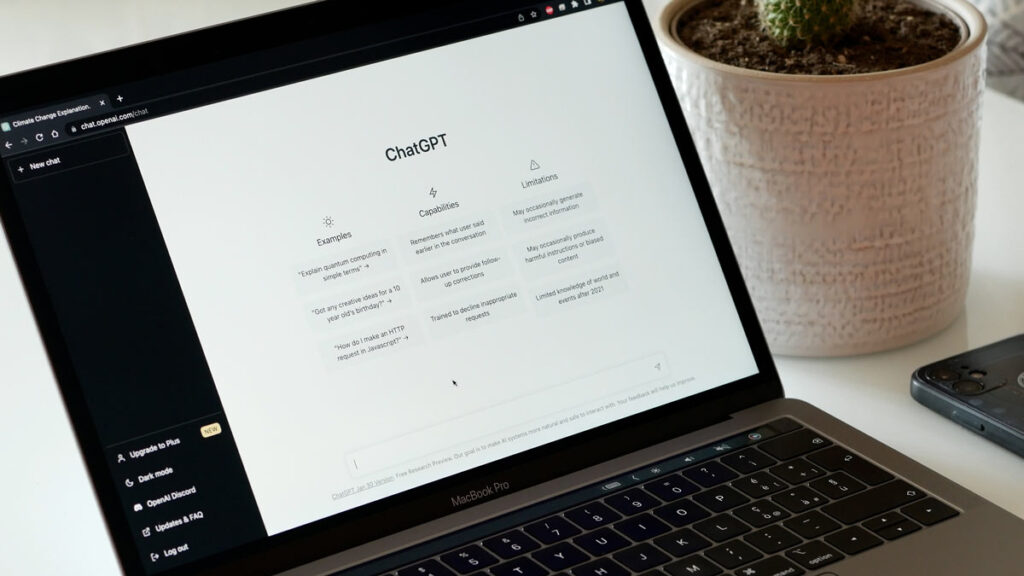Top Class Actions’s website and social media posts use affiliate links. If you make a purchase using such links, we may receive a commission, but it will not result in any additional charges to you. Please review our Affiliate Link Disclosure for more information.

ChatGPT lawsuit overview:
- Who: Authors Paul Tremblay and Mona Awad have filed a lawsuit against OpenAI.
- Why: OpenAI’s ChatGPT software product allegedly utilized their copyrighted books in its training dataset without their consent.
- Where: The ChatGPT lawsuit was filed in California federal court.
Two authors have filed a ChatGPT lawsuit alleging they did not consent to the use of their copyrighted books as training material for OpenAI’s software product.
“Nonetheless, their copyrighted materials were ingested and used to train ChatGPT,” plaintiffs Paul Tremblay and Mona Awad allege in the ChatGPT class action lawsuit.
OpenAI creates artificial intelligence (AI) products that are designed to algorithmically simulate human reasoning, the ChatGPT lawsuit explains.
ChatGPT is a software product that is powered by two artificial intelligence software programs called GPT-3.5 and GPT-4, which are known as large language models.
Instead of being programmed in a traditional manner, large language models are “trained” by copying large amounts of text and extracting information from it, the ChatGPT lawsuit explains. The large language model is able to use the information from this training dataset to output convincing responses to user prompts.
Tremblay and Awad note that, when prompted, ChatGPT generates accurate summaries of their copyrighted work, which is only possible if ChatGPT was trained on their copyrighted materials.
They say that OpenAI defendants “profit richly” from the use of their copyrighted materials and yet the authors never consented to the use of their copyrighted materials without credit or compensation.
ChatGPT lawsuit says OpenAI has previously utilized illegal ‘shadow libraries’ for AI training datasets
Although many types of material are used to train large language models, “books offer the best examples of high-quality longform writing,” according to the ChatGPT lawsuit.
OpenAI has previously utilized books for its AI training datasets, including unpublished novels (the majority of which were under copyright) available on a website that provides the materials for free. The plaintiffs suggest that OpenAI may have utilized copyrighted materials from “flagrantly illegal shadow libraries.”
Tremblay and Awad note that OpenAI’s March 2023 paper introducing GPT-4 failed to include any information about the training dataset. However, they say that ChatGPT was able to generate highly accurate summaries of their books when prompted, suggesting that their copyrighted material was used in the training dataset without their consent.
They filed the ChatGPT class action lawsuit on behalf of themselves and a proposed class of U.S. residents and entities that own a U.S. copyright for any work used as training data for the OpenAI language models during the class period.
Earlier this year, a tech policy group urged federal regulators to block OpenAI’s GPT-4 AI product because it does not meet federal standards.
What do you think about this ChatGPT lawsuit? Join the discussion in the comments!
Tremblay and Awad are represented by Joseph R. Saveri, Cadio Zirpoli, Christopher K.L. Young, and Kathleen J. McMahon of Joseph Saveri Law Firm LLP, and Matthew Butterick.
The ChatGPT lawsuit is Paul Tremblay, et al. v. OpenAI Inc., et al., Case No. 4:23-cv-03223-KAW, in the U.S. District Court for the Northern District of California, San Francisco Division.
Don’t Miss Out!
Check out our list of Class Action Lawsuits and Class Action Settlements you may qualify to join!
Read About More Class Action Lawsuits & Class Action Settlements:















One thought on Class action lawsuit claims ChatGPT uses copyrighted books without authors’ consent
Add me